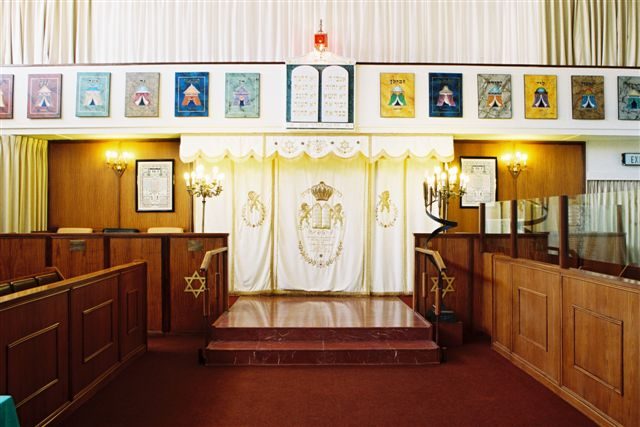
Founded in 1960, the Sephardi Hebrew Congregation of Cape Town has been a cornerstone of the local Jewish community, serving as a bastion of Sephardic heritage and tradition in South Africa. From its humble beginnings to its present-day prominence, our congregation has remained steadfast in preserving and celebrating the rich tapestry of Sephardic Judaism, while also contributing to the vibrant cultural mosaic of Cape Town. As we reflect on our history, we honour the generations of individuals whose dedication and vision have shaped our community into the welcoming and vibrant home it is today.
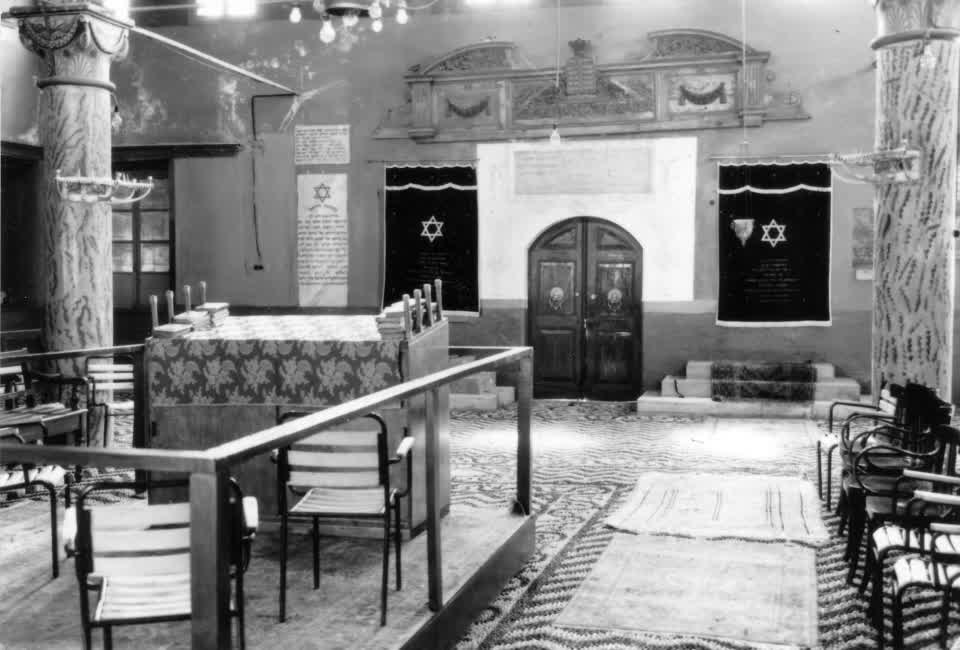
“Kahal Kadosh Shalom” – The Holy Gathering of Peace – is named in memory of the historic Congregation of Rhodes, which shares the same name. Jews have lived on Rhodes Island for centuries, with many arriving as exiles from Spain following the expulsion in 1492 and settling on the island by the early 1500s.
At the turn of the 20th century, there was significant emigration from Rhodes as people sought to improve their lives and provide better opportunities for their families. Many young men took the initiative to emigrate to America and Africa, settling in regions such as Rhodesia and the Belgian Congo in search of a brighter future.
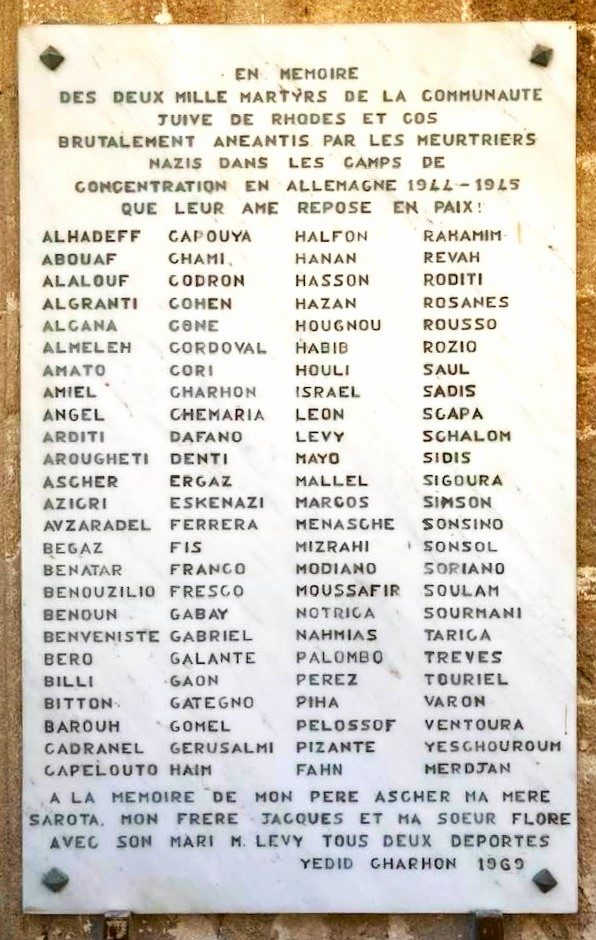
As they established themselves in these new, relatively undeveloped countries, they sent money back to Rhodes Island to support their parents, and in time, they arranged for their families to join them. This enabled thousands of people to leave the island before the onset of World War II, escaping the devastating events that followed. Those who remained were deported by the Nazis on 17th July 1944 and sent to Auschwitz.
Of the approximately 1,700 people taken from Rhodes and Cos, the majority were exterminated that same year, while the remaining individuals were forced into various labour camps. Tragically, only 151 people survived the war, eventually reuniting with their families in America and Africa.
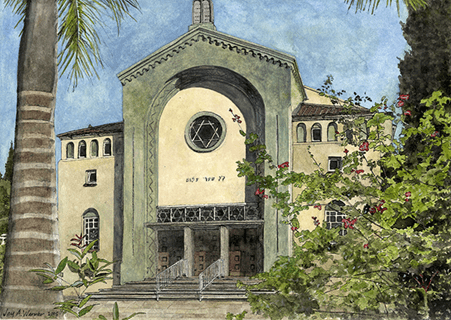
Until 1960, the Sephardi Jewish communities in Rhodesia and the Congo prospered, growing in numbers and maintaining their rich Sephardi traditions. However, the independence of the Belgian Congo in June 1960 led to chaos, forcing many refugees to flee the country. A number of these refugees found temporary shelter in refugee centres in Rhodesia, and once they regained stability, many began to make their way to South Africa, particularly to Cape Town.
In 1967, the minor Weizmann Hall was used for the first time to celebrate the High Festivals, with the Green and Sea Point Hebrew Congregation kindly lending Sefer Torahs and prayer books for the occasion. Lay chazanim conducted the services, preserving the Sephardi liturgy and keeping the community’s traditions alive.
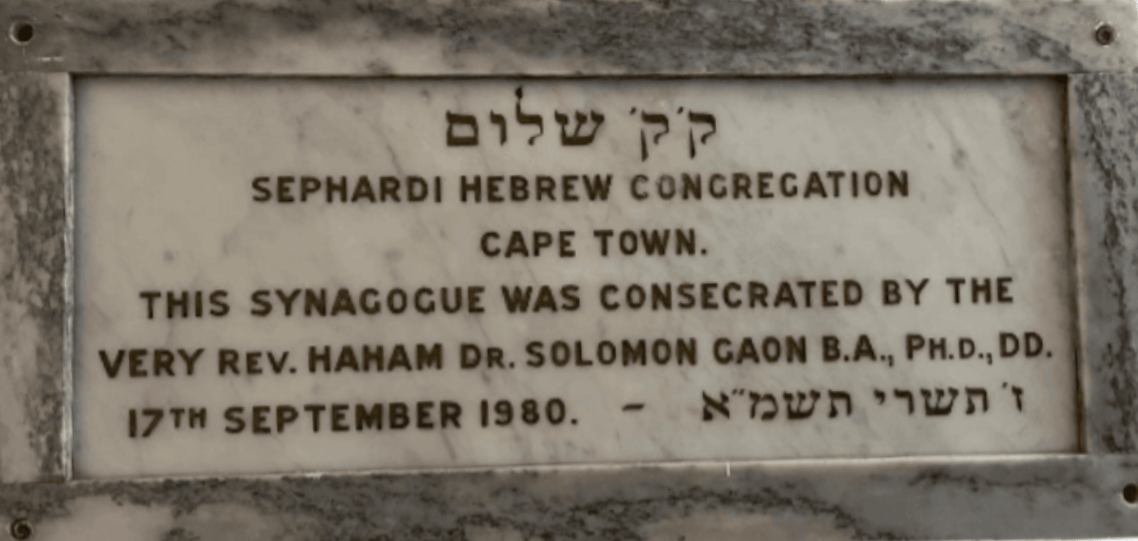
In 1979, the Green & Sea Point Hebrew Congregation graciously granted permanent use of the minor Weizmann Hall. By this time, many Sephardim from Rhodesia had joined the growing community. In September 1980, Haham Solomon Gaon z”l, Chief Rabbi of all Sephardi Congregations in the Diaspora, inaugurated and consecrated the synagogue, naming it “Kahal Kadosh Shalom.” This name honours the last remaining synagogue on the historic and beautiful island of Rhodes.
Rabbi Ruben Suiza was inducted as the Rabbi of the congregation on the same day and now holds the title of Rabbi Emeritus following his retirement. With the arrival of Jews from Egypt, Turkey, and new members from Zimbabwe, the congregation has expanded significantly, establishing itself as the central meeting place for all Sephardim in Cape Town.
Our Sephardi liturgy and style of service, along with the warm and welcoming atmosphere, attract many Israelis living in Cape Town, making our Kehila a truly multicultural community. Festivals and religious occasions are celebrated as a family, with events such as the Chanukah Braai, Pesach Seder, Succoth Dinner, Shavuot Dinner, and more drawing large gatherings. Our beautifully renovated facilities and comfortable premises, combined with the dedication of our presidents, committees, and tireless Ladies Guild, ensure that all congregants are well cared for.
Exciting opportunities for social and community engagement include a weekly Cards Club, a Padel Group for participants aged up to 85 years, and children’s services held on most Friday evenings and Saturday mornings. Torah learning and shiurim remain central to our community, with various study sessions offered on a weekly basis.
Looking ahead, our congregation is confident about the future, anticipating growth in social, religious, and communal activities for all. As an integrated Sephardi Orthodox Synagogue, we continue to thrive in the heart of the Jewish community in Cape Town.
Despite the fateful expulsion of the Jews from Spain in 1492, the Sephardim have demonstrated remarkable resilience and strength of character in preserving their traditions, customs, culture, and language in new lands.
It is with these same attributes that our early Sephardi pioneers arrived in Cape Town around 1960, successfully planting the seeds for the establishment of a vibrant Sephardi Congregation.
These pioneers, many of whom were middle-aged or older, enjoyed a balanced life of work, family time, and synagogue attendance. Their spirituality inspired them to seek a place to pray in the manner to which they were accustomed in Rhodes, Congo, and Rhodesia.
We were fortunate that among the founders of our community were knowledgeable lay readers such as Simon Israel, Moise Israel, and Nissim Piha, who were able to conduct religious services. In the 1970s, Jacques Notrica joined in these services, further enriching our communal worship.
Joseph Rahmani generously dedicated much of his time and effort as the driving force behind the growth of the Sephardi Hebrew Congregation. He served as a lay leader and was elected the first President of the congregation from its inception in 1960 until 1973, later being honoured as Hon. Life President.
Throughout the 1960s and 1970s, Moise Israel played a significant role as a lay leader and subsequently became the second President of the congregation from 1973 to 1979. He nurtured the growth of our synagogue and ensured that our roots remained firmly planted. Moise meticulously ensured our melodies were sung and our services were conducted according to our Sephardi Minhag. He was also made Hon. Life President.
In 1979, Joe Fintz took on the presidency of the Kehila, making it his mission to build upon the achievements of his predecessors. His vision was to make our community fully functional in line with other shuls in Cape Town. Joe played leadership roles on behalf of the Sephardi community within the broader Cape Town Jewish Community. His remarkable contributions included bringing Rabbi Ruben Suiza from Rhodesia to meet our spiritual needs, securing a long-term lease for the minor Weizmann Hall from the Green & Sea Point Hebrew Congregation, and initiating the purchase of the ministerial house on Kei Apple Road, Sea Point. He was also made Hon. Life President.
Jacques Franco served as President from 1982, forming a formidable partnership with Joe Fintz, alternating the presidency until 1989. Jacques played a crucial role in furnishing our Kehila with essentials such as the bimah, pews, kitchen equipment, and more. His unwavering commitment to our Sephardi Centre helped to unite the community through diverse activities.
Gordon Joffe served as President for one year from 1989 to 1990. He was deeply committed and used his organisational skills to enhance the running of the committee. By efficiently delegating responsibilities, Gordon ensured that each committee member was accountable for specific portfolios, paving the way for the congregation’s continued prosperity.
From 1990 to 1992, under the presidency of Moise Soriano, our congregation commemorated the quincentennial anniversary of the expulsion of the Jews from Spain in 1492. A subcommittee called Sepharad ’92, led by Bobby Benatar as Head Convenor alongside Moise Soriano, Joe Fintz, Jacques Franco, and Gordon Joffe, organised a series of commemorative activities throughout 1992. These included a special service at our Kehila attended by numerous dignitaries, a series of lectures, a sell-out food fair, and an auspicious banquet at the Cape Sun Hotel in honour of former President of Israel Mr Yitzhak Navon, who was also the Chairman of World Sepharad ’92. These successful events significantly raised awareness of Sephardi history and culture in Cape Town.
Bobby Benatar has consistently served on most committees since his arrival from Zimbabwe. He has often raised the important issue that not enough is being done to educate our youth about our Sephardi heritage. At AGMs, Bobby has been meticulous about ensuring that meetings run according to the constitution of the Sephardi Hebrew Congregation of Cape Town. As head convenor of the Sepharad ’92 activities, Bobby is a highly esteemed member of our congregation and a proud Sephardi son. He was made Hon. Life Member.
Ruben Franco took a keen interest in synagogue matters while in the Congo and joined forces with other pioneers when he settled in Cape Town in the early 1960s. His energy, commitment, and familiarity with Sephardi culture made him a valuable member of the team building our Kehila. He commanded respect from congregants due to his humility and respect for all members and visitors. He served as Gabbai until 1989 and was honoured as Hon. Life Gabbai.
Joe Menashe naturally succeeded the position of Gabbai, which he held from the chaggim of 1989 throughout the 1990s. He efficiently assisted in all religious activities at the synagogue. Joe also contributed to the treasury department by accurately recording all weekly donations and collections, while organising popular Tuesday card afternoons for social engagement.
Jacqueline Avzaradel has served as Chairlady of the Ladies Guild since the early years, providing invaluable support and assistance in all communal and social functions. Jacqueline, alongside Rabbi Suiza, consistently visited sick members of the congregation. In appreciation for her years of devotion to our community, the committee honoured her by placing a leaf on our Tree of Life.
Our esteemed Rabbi Ruben Suiza has played a monumental role for 35 years, significantly contributing to establishing our Sephardi Synagogue as a key institution in Cape Town and in all spheres of Judaism. He fulfilled all congregational needs, serving as Torah reader, Chazan, Mohel, and Shechita, among others. Speaking Ladino, he resonated with the older generation, making himself available to all congregants in times of joy or sorrow. Rabbi Suiza excelled in his endeavours, going well beyond his call of duty. Following his retirement, he now holds the title of Rabbi Emeritus.
Many other members continue to take on leadership or volunteer roles, and we greatly value their ongoing contributions to the continuity of our community. Over the years, the generosity of our congregants has been unwavering, whether through monetary donations or the gift of their time. Their contributions ensure our Kehila is equipped with prayer books, Zehira Boards, and other essential resources. This generosity is vital for our sustainability and is deeply appreciated.